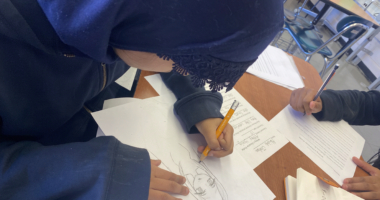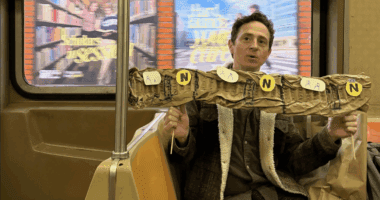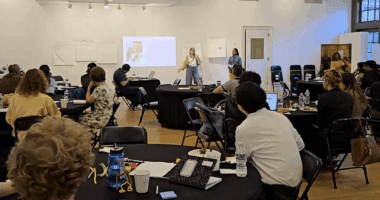My fellow trainees and I are wrapping up our internships with Community-Word Project’s Teaching Artist Training & Internship (TATIP) program and the job interview process has begun to loom over us. During our latest group debrief session, our mentors, Patti Chilsen and Scott Lilly, made some excellent points about the job search and interview process.
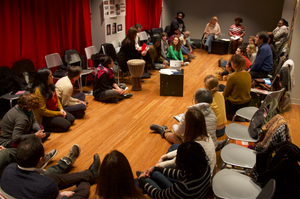
They explained that in person introductions are always better than resumes submitted through email or fax. Meeting in person lets the potential employer place a name to the resume and see if there is any memorable chemistry. To do this, it is important to attend career events and really put yourself out there. It is also essential to make sure you mention your knowledge of the institution to show that you are dedicated and have done your research.
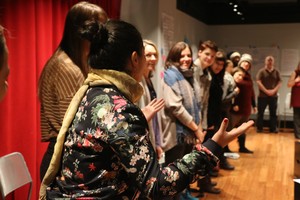
Patti also mentioned that asking the interviewer about him/herself is also an excellent opportunity to get more information about the company and serves as an icebreaker (ex. How long have you been with the company/program?). Get to know the company mission statement as well. Ask yourself it aligns with your own goals and values. Be honest. If you just tell the interviewers what you think they want to hear, they will see right through it. Most interviewers have been conducting interviews for quite some time and have had training. It’s a good idea to ask what they are looking for in an optimal candidate. This lets you assess if you match up to what they desire. It also indicates what training you will need, if any.
It’s okay to ask what the pay rate is, but do so tactfully. Make sure your resume is updated and is in a simple and concise format. List relevant experience to the job you are applying for and don’t be afraid to let your resume show that you are at an entry level. Since many places will want to get an idea of your teaching style and experience, they will request for you to walk them through one of your plans. At this point, you should take advantage of the opportunity and have planned for this ahead of time. If you are given a time limit, abide by it. Many interviewers are very rigid with the time limit. Less is more. Also, keep your demographic in mind. Always ask questions. It lets the interviewers know that you are listening, paying attention, and engaged/interested. It shows that you are in the present moment. If you have a website, portfolio, artist statement, pictures, etc., share them. The program wants to know about you and your work to make sure it would be a good match. Sharing your work is the best way to do this. Also, if you have sample plans and/or pictures of you conducting one of your pans, share. They want to see you in action. The only way to get a teaching position is to really put yourself out there and be honest about who you are and what you stand for. All else will come and you will eventually find the right fit for both you and your future employer.

